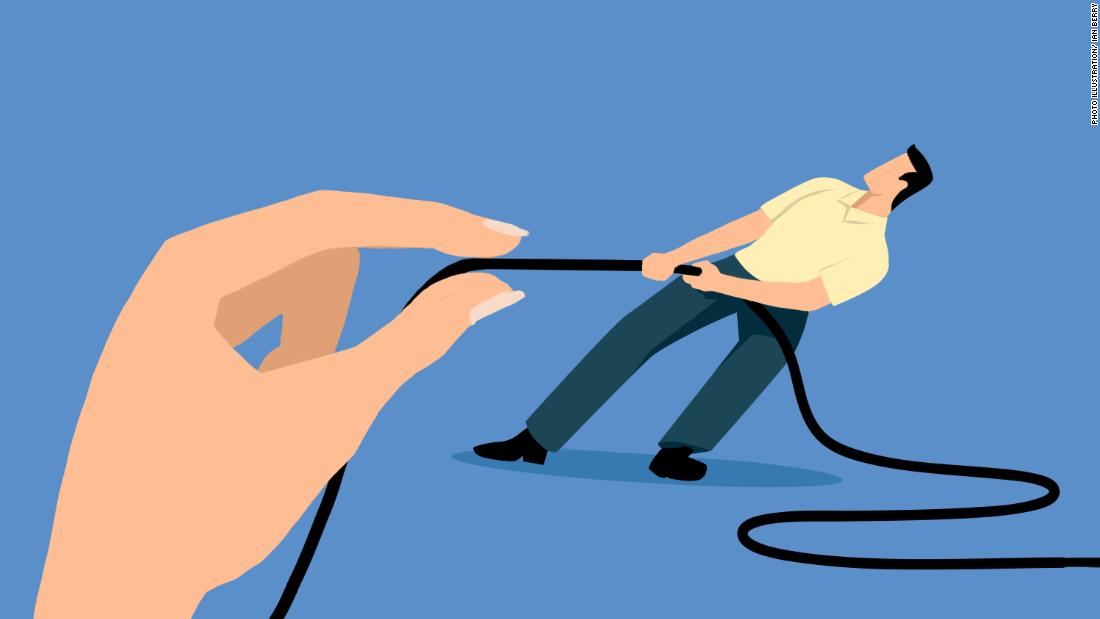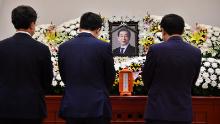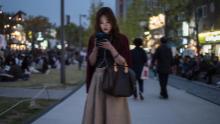When gamers created their avatars laugh, talk or give the “Ok” sign in “Misplaced Ark,” they clicked an icon that includes a gesture that may possibly have appeared benign to many: an index finger practically touching a thumb.
But some of “Lost Ark’s” users started boasting in August that the gesture was a sexist insult towards adult males, and they demanded its elimination.
Smilegate — the creator of “Misplaced Ark” and just one of South Korea’s major video clip recreation developers — rapidly complied with the requests for removal. The enterprise taken out the icon from the match, and vowed to be more vigilant about policing “recreation-unrelated controversies” in their products and solutions.
Now, nevertheless, the latest improvement in this war is reaching a fever pitch. Because Could, more than 20 makes and governing administration organizations have removed what some see as feminist symbols from their merchandise, right after mounting strain. At least 12 of all those makes or corporations have issued an apology to placate male consumers.
Anti-feminism has a yrs-long background in South Korea, and investigation indicates that such sentiments are having hold among the the country’s youthful adult men. In May possibly, the Korean advertising and marketing and analysis company Hankook Analysis said it located that more than 77% of gentlemen in their twenties and more than 73% of gentlemen in their 30s had been “repulsed by feminists or feminism,” according to a study. (The firm surveyed 3,000 grown ups, fifty percent of whom were being males.)
A suspicious sausage
The on-line firestorm that has distribute across South Korea’s corporate landscape kicked off in Could with a very simple camping advertisement.
GS25, one particular of the country’s most important usefulness retailer chains, unveiled an advert that month attractive prospects to order tenting meals on their app, promising cost-free items as a reward. The advert confirmed an index finger and a thumb appearing to pinch a sausage. The finger-pinching motif is routinely applied in advertising and marketing as a way to keep an merchandise without obscuring the merchandise.
Critics, although, observed some thing distinctive in that hand signal. They accused it of currently being a code for feminist sympathies, tracing the use of the finger-pinching motif to 2015, when the symbol was co-opted by Megalia, a now-defunct feminist on line neighborhood, to ridicule the sizing of Korean men’s genitals.
Megalia has considering that shut down, but its logo has outlived the group. Now anti-feminists are trying to purge South Korea of its existence.
GS25 removed the hand image from the poster. But critics nonetheless weren’t happy, and commenced trawling the advertisement for other feminist clues. A person man or woman pointed out that the last letter of each individual term highlighted on the poster — “Psychological Tenting Need to-have Merchandise” — spelled “Megal,” a shorthand for “Megalia,” when examine backward.
GS25 removed the textual content from the poster, but that nonetheless wasn’t plenty of. Folks theorized that even the moon in the qualifications of the poster was a feminist symbol, for the reason that a moon is utilised as the brand of a feminist scholar business in South Korea.
Right after revising the poster many periods, GS finally pulled it fully, just a day just after the marketing campaign released. The firm apologized and promised a better editorial system. It also explained it reprimanded the team liable for the ad, and eliminated the marketing and advertising staff chief.
The on the net mob experienced tasted success, and it desired far more.
Other providers and govt businesses soon turned targets. The on-line vogue retailer Musinsa was criticized for providing ladies-only special discounts, as nicely as applying the finger-pinching motif in an advert for a credit history card. The enterprise defended the use of that motif as a neutral factor consistently used in marketing, and claimed its price reduction program was meant to assistance broaden its tiny feminine client foundation. Nevertheless, founder and CEO Cho Man-ho stepped down soon after the backlash.
Dongsuh, the Korean company that licenses a Starbucks completely ready-to-consume line in the country, was attacked in July immediately after 1 of its Korean Instagram accounts printed an impression of fingers pinching a can of coffee. The company pulled the advertisement and apologized, declaring that it “considers these issues severely.” The company also claimed the image experienced no concealed intent.
Even neighborhood governments have been caught up in the pressure campaign. The Pyeongtaek city government was criticized in August soon after uploading an image to its Instagram account that warned inhabitants of a heatwave. It utilised an illustration of a farmer wiping his brow — and critics noticed that the farmer’s hand was formed similarly to the finger pinch.
“How deeply did [feminists] infiltrate?” 1 individual wrote on MLB Park, an web discussion board employed mainly by men. One more particular person shared contact information and facts for the town govt, encouraging men and women to flood their channels with grievances. The image was afterwards taken out from the Instagram account.
Gender wars
At the main of the anti-feminist marketing campaign is a popular concern among youthful men that they are slipping powering their woman peers, in accordance to Professor Park Ju-yeon, professor of sociology at Yonsei University.
This year’s corporate pressure campaign adds yet another complication, as makes weigh the attainable fallout.
Youthful adult males are “large spenders,” reported Professor Choi Jae-seob, a marketing and advertising professor at Namseoul University in Seoul. He extra that several youthful people now are driven by individual political values when they invest in items.
Ha, a 23-12 months-aged university college student, said he pays consideration to what businesses say about gender challenges prior to producing a buy.
“Among two stores, I would use the 1 that will not help [feminism],” claimed Ha, who declined to give his complete identify since he reported that gender is a thorny subject among his friends.
Ha explained he’s far from by yourself. When his mates have been speaking about the GS25 tenting poster, for example, he was stunned to find that many of them felt the way he did: “I recognized that several adult males ended up silently seething.”
The gender war leaves companies in a tough location, in accordance to Noh Yeong-woo, a marketing consultant at the general public relations company PR A single.
By not responding to allegations that they are taking a stance on gender troubles, that could guide to what Noh called a “continual barrage of accusation” and the generation of a stigma. It also suggests that organizations are actively checking on the net groups and finding out what their customers have selected as hidden codes or associations, to keep away from being called out.
“They are continuously examining for the up coming problematic symbols,” Noh said of brands in South Korea.
Stigmas and battling back again
Some women of all ages, though, say that the corporate apologies are also generating a weather in which some individuals are worried to detect as feminist.
“It truly is the new Crimson Scare. Like McCarthyism,” stated Yonsei University’s Park, referring to the mass hysteria to root out communists in the United States in the 1950s.
Lee Ye-rin, a university college student, said she has been a feminist considering that middle faculty. But in latest years she has located it unachievable to be open about her stance.
She recalled an incident in substantial faculty, when some boys overtly heckled a feminist good friend of hers even though that buddy was giving a course presentation on the depiction of women in the media. Lee and her classmates have been far too frightened to protect the close friend.
“We all knew that a man or woman who would action up and say that feminism is not some odd thing would be stigmatized, far too,” Lee stated.
In reaction to this year’s anti-feminist strain campaigns, while, some feminists have been combating back again. The apology about the camping poster from GS25, for instance, prompted feminists to call for boycotts in opposition to the enterprise. Some folks shared photos on the web of on their own searching at rival outlets, working with hashtags that termed on men and women to prevent shopping at GS25.
Balancing act
As there would not look to be a great deal hope of finding center ground for those people waging South Korea’s gender war, authorities say businesses have to figure out techniques to prevent remaining dragged into a model-harming combat.
Noh, from PR A person, inspired providers and businesses to educate their staff members on gender sensitivity — and even rethink the use of symbols that have turn out to be seriously politicized.
Finger-pinching motifs “are illustrations or photos with complex metaphors and symbols and they previously have a social stigma,” he said. “So, after you get included in it, it is really tough to make clear them away … the concern keeps spreading right until they are eradicated as demanded.”
Park, the Yonsei University professor, stated that aspect of the issue is that lots of South Korean businesses are led by more mature gentlemen who really don’t have a agency grasp of current-working day gender concerns. The typical age of an executive-amount staff at the country’s top rated 30 publicly traded firms is 53, in accordance to a 2020 examination by JobKorea, a Korean version of LinkedIn.
That implies a level of irony. Probably it’s not that some of these companies have a certain agenda, as online critics are accusing them. Potentially for some of them, substantial degrees of management are just not in tune with the discussion.
To Park, the vitriol directed at companies has also buried some of the underlying, systemic concerns that add to gender inequality, together with debates about how finest to crack the glass ceiling or address the division of labor at dwelling, amid other concerns.
“Some really essential debates are being buried,” Park stated, introducing that modern gender war is staying fought on the suggestion of the “iceberg.” “It really is not a fight about the fingers.”
— Jae Hee Jung, So-hyun An, So Jung Kim, and Soyeong Oh contributed to this report.


